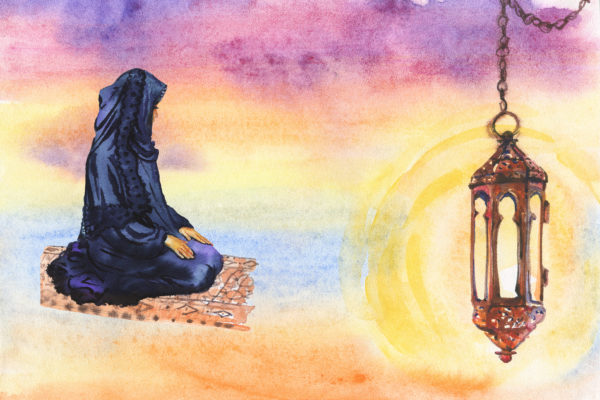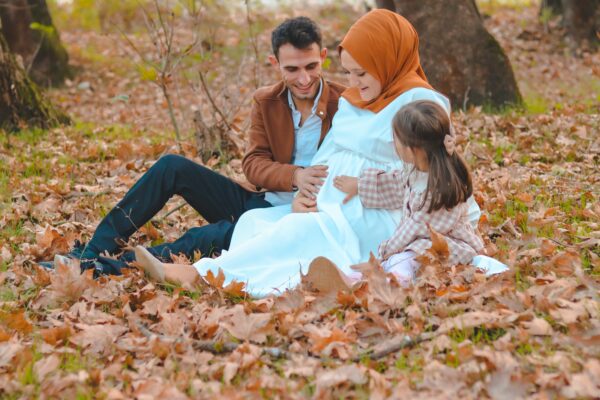As Muslims, we believe that all human beings are born in a pure state – men and women – and that we must strive to preserve this purity through faith, as well as good intentions and deeds.
As Muslims, we believe that all human beings are born in a pure state – men and women – and that we must strive to preserve this purity through faith, as well as good intentions and deeds.
The first person to embrace Islam was a woman; Khadija (ra). The greatest scholar of Islam was a woman; Aisha (ra). The person who loved the Prophet (saw) the most was a woman; Fatima (ra).
Despite misconceptions, the status of women in Islam is that of a beloved equal. In the midst of a deeply sexist historical context, the Prophet (saw) preached boldly on the importance of women; celebrating their unique contributions to family and society, condemning the ill-treatment of women and campaigning for their rights.
Many of the negative stereotypes around women in Islam arise not from Islamic guidance but from cultural practices, which not only denigrate the rights and experiences of women, but also stand in direct opposition to the teachings of Allah (swt) and His Prophet (saw).
Far from the stereotype of the voiceless and veiled Muslim woman, Shaykh Ibn Baaz argues, “There is no doubt that Islam came to honour to the woman, guard her, protect her from the wolves of mankind, secure her rights and raise her status.”
With all the confusion between history, culture, and religion, it’s important to ask ourselves the question: what does the Qur’an and the Ahadith actually teach us about the status of women in Islam?
What Islam teaches us about gender equality
The Qur’an teaches us that Adam and Eve were created from the same soul; both equally guilty, equally responsible, and equally valued. As Muslims, we believe that all human beings are born in a pure state – men and women – and that we must strive to preserve this purity through faith, as well as good intentions and deeds.
The theme of equality runs through other Islamic teachings, too. An important verse in the Qur’an reads, “The men believers and the women believers are responsible for each other. They enjoin the good and forbid the evil, they observe prayers and give charitable alms and obey God and his Prophet” (Qur’an, 9:71).
This verse shows us that men and women have equal responsibilities for observing Islamic teachings; another Quranic verse lays out the status of women and men as equals, stating, “To whoever, male or female, does good deeds and has faith, we shall give a good life and reward them according to the best of their actions” (16:97).
Protecting women’s rights
In 610 CE, the Prophet Muhammad (saw) was living in a historical context rooted in sexism. From Europe to the Arabic world, women were not treated as equal to men. Islam itself was born in the Arabian Peninsula, now Saudi Arabia, where women did not have businesses, own property, or inherit money. What’s more, forced marriage was common, education for girls was rare, and female babies were often abandoned or buried alive.
The Prophet (saw), and his businesswoman wife, Khadija (ra), stood against many of these unjust practices, advocating for men to treat women and girls with the utmost respect. According to the laws of Islam, all life is considered sacred, and men and women have the right to choose whom to marry and should never be forced.
Under Islamic laws, women also have the right to sell and buy properties, run businesses, demand her dowry at any point during her marriage, vote, and take an active part in all aspects of politics and society. It is notable that many Islamic countries, such as Turkey and Pakistan, have had female Presidents.
The Prophet (saw) also promoted equal access to education, teaching us that, “The pursuit of knowledge is a duty of every Muslim, man and woman” [Ibn Maja]. The Beloved’s (saw) own daughter, Fatima (ra), was highly educated and respected. It is documented that whenever Fatima (ra) entered a room, the Prophet (saw) would stand up, and give his seat to her.
A legacy of female empowerment
As Muslims, we strive to follow the Sunnah and continue the great works of the Prophet (saw). That includes advocating and working for the millions of women around the world who are still victims of systematic oppression and violence.
Penny Appeal’s Women’s Welfare appeal is a charity that supports women, through a variety of tailored projects. We empower women and girls around the world through education, domestic abuse support services, dignity kits, safe spaces for refugee women and sustainable vocational training, such as training in sewing and setting up textiles businesses, and climate-resistant farming.
Give to charity for women in need, and you will be building upon the legacy of the Prophet (saw) and the many incredible Muslim women who have fought for the rights of women and girls, for generations.
Champion women and girls by donating to our charity for women in need, and help even more women to thrive and follow in the footsteps of Khadija (ra), Aisha (ra) and Fatima (ra)!
To learn more about Penny Appeal, click here.





